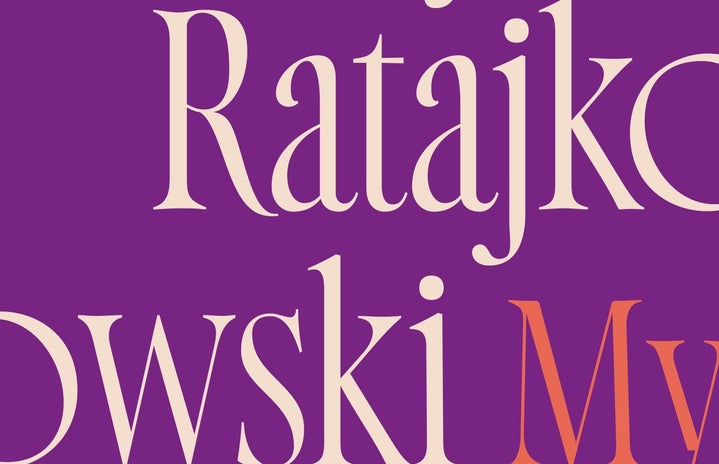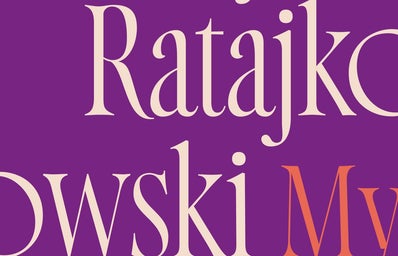Among other accolades, Emily Ratajkowski is now also a New York Times Best Seller author since publishing My Body, a compendium of personal essays punctuated with Ratajkowski’s interrogations on the commodification of the female body, misogyny, power, and motherhood.
The Her Campus x Emily Ratajkowski Q&A kicked off with a question I’ve had since reading her book in November 2021: how does Ratajkowski show up differently for herself and others since publishing such transparent, vulnerable work? In her response, she circles back to a lack of respect and self-validation she resonated with pre-My Body. A model and actress, Ratajkowski reveals that working in industries that are hyper-focused on women’s appearance restricted her cues of self-approval to her physical attributes. “Writing the book was the first time that I felt I was really being seen,” she tells Her Campus. “This was an incredibly validating experience. Writing the book has really transformed me not only because I am being acknowledged for being a mind and for being more than just a body, but also because it has brought me great joy. This journey has made me a better person, a better mom, and a better friend because I am happier and more content with myself.”
When asked to disclose some words of wisdom to her younger self, Ratajkowski wishes that she had not been so hard on herself. “When I was 20, every single thing I did felt like a mistake. I was constantly making decisions and thinking I was failing at them. There’s no escaping from failure when you’re growing up, and anyone who says any different is lying to you, but, looking back, I wish I had written my thoughts down on paper more instead of beating myself up with them.” She shares that nobody is immune to internal struggles and encourages her wide audience of young women to dial down on negative self-talk. The author admits that self-doubt has relentlessly followed her, especially when she’s pushing the boundaries of her professional identity. “I feel too short to be a model, not educated enough to be a writer, and not versed enough in TikTok to do TikTok. I’ll find any sort of excuse not to feel good about myself in any space, which is such a universal feeling. But on the other hand, I love rising to a challenge and giving myself a moment when it’s due.”
Ratajkowski has most likely been on your TikTok’s for-you page this year. The author often heads to the app to duet other creators’ thought-provoking videos or to add her insightful takes on pop culture, politics, and women’s rights. For Ratajkowski, TikTok is “more relevant than any other media we have, and all its features are so smart and encourage building conversations. It’s nice to know that I can share a thought I’m having without having to expand it into an entire essay to reach my audience. Maybe it will be another essay one day, but sometimes I just want it to be a TikTok.” Even though she loves connecting with others through social media, Ratajkowski is a stickler for taking care of her mental health. “Yesterday, I canceled all of my plans, put on a hoodie, and watched a movie.” Honestly, same.
Now what?
Although Ratajkowski doesn’t claim to have all the answers, she vehemently states that what the modeling industry does is “at its core problematic.” Ratajkowski believes that no matter its bodily or racial representation, the industry will always be setting “some sort of beauty standard.” The author also claims that a woman’s body will never be non-political. Ratajkowski hopes that My Body continues being a stimulus for impactful conversations on the melange of pressing issues it touches on, which is much more than what she had envisioned while writing her first essay.
As the conference came to an end, Her Campus asked Ratajkowski of her favourite mantra. Although she doesn’t have a singular, go-to affirmation, she did share a saying she came up with in her earlier years: “life cannot be dictated by how you’ll be perceived. It’s hilarious,” she adds, “because my career is almost entirely built on how I am perceived. I’ve had a full circle moment back to this quote since publishing My Body, and I relate to the quote much more profoundly now.”
The recycled superficiality that Ratajkowski is “a girl whom men were obsessed with and women hated” (My Body, p. 215) belies the inquisitive, restless spirit that ensues her writing. Stronger and more secure in herself now than ever, Ratajkowski is definitely a mind to be reckoned with.
“I have grown past shame and fear and into anger. It is ugly, but I am not scared of it. I want more for myself. I will proclaim all of my mistakes and contradictions, for all the women who cannot do so, for all the women we’ve called muses without learning their names, whose silence we mistook for consent, I stood on their shoulder to get here.” -Emily Ratajkowski, My Body
This article was originally published on 10/11/2022. It was updated on 10/14/2022.


